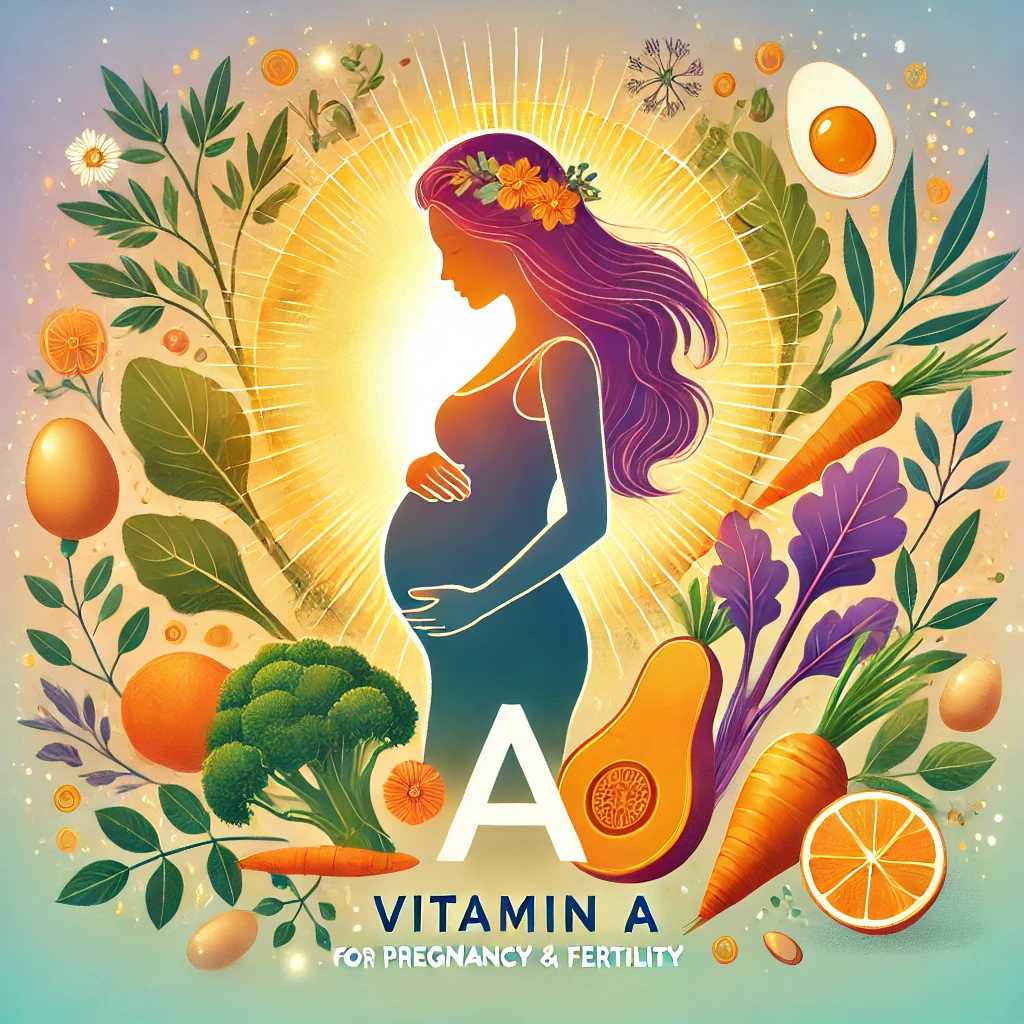Vitamin A in Pregnancy and Fertility: What You Need to Know


| Aspect | Details | Tips for Expecting Mothers |
|---|---|---|
| Importance of Vitamin A | Essential for fetal development, vision, and immune health | Balance intake to avoid deficiency or excess |
| Role in Fertility | Supports reproductive health and hormonal balance | Include Vitamin A-rich foods in your diet |
| Safe Dosage During Pregnancy | Recommended daily intake is 770 mcg for pregnant women | Avoid high-dose supplements without consulting a doctor |
| Sources of Vitamin A | Found in animal-based (retinol) and plant-based (beta-carotene) foods | Focus on leafy greens, carrots, and dairy |
| Risks of Excess Vitamin A | Excessive intake can cause birth defects or liver toxicity | Monitor intake from both food and supplements |
Vitamin A is a vital nutrient for fertility and pregnancy, playing a key role in fetal development, vision, and immune function. However, its dual nature—beneficial in the right amounts but harmful in excess—makes it essential to understand how to incorporate Vitamin A safely into your diet and fertility journey. This guide explores everything you need to know about Vitamin A, from its role in reproductive health to safe consumption during pregnancy.
Why is Vitamin A Important During Pregnancy?
Vitamin A is crucial for:
- Fetal Growth: Supports the development of the baby’s heart, lungs, kidneys, and bones.
- Vision Development: Essential for forming the retina and ensuring healthy vision.
- Immune System: Strengthens both maternal and fetal immune systems to prevent infections.
- Skin and Tissue Repair: Helps maintain healthy skin and mucous membranes.
Vitamin A and Fertility
Vitamin A contributes to reproductive health by:
- Supporting the production of reproductive hormones.
- Promoting sperm and egg health.
- Improving the health of the uterine lining for implantation.
For men, Vitamin A aids in spermatogenesis, while for women, it helps regulate ovulation.
Pro Tip: Ensure balanced Vitamin A intake from both plant and animal sources to optimize fertility.
Safe Dosage of Vitamin A During Pregnancy
Pregnant women need 770 mcg of Vitamin A daily, while lactating women require up to 1,300 mcg.
Caution: Avoid exceeding 3,000 mcg daily during pregnancy, as excessive intake can cause:
- Birth defects.
- Liver toxicity.
Key Recommendation: Stick to dietary sources and prenatal vitamins approved by your healthcare provider.
Sources of Vitamin A
Vitamin A is available in two forms:
- Preformed Vitamin A (Retinol): Found in animal-based foods.
- Liver (highest concentration)
- Dairy products (milk, cheese, butter)
- Eggs
- Provitamin A (Beta-Carotene): Found in plant-based foods.
- Carrots, sweet potatoes, and pumpkins
- Leafy greens like spinach and kale
- Mangoes and apricots
Pro Tip: Focus on beta-carotene-rich foods during pregnancy to reduce the risk of overconsumption.
Vitamin A Deficiency and Its Impact
Vitamin A deficiency can lead to:
- Night blindness in pregnant women.
- Weakened immunity and increased infection risk.
- Impaired fetal growth and development.
Populations at higher risk include:
- Those with restrictive diets.
- Individuals with malabsorption disorders.
Solution: Incorporate a variety of Vitamin A-rich foods in your diet or consider supplements under medical supervision.
Risks of Excessive Vitamin A During Pregnancy
Excessive intake of preformed Vitamin A (retinol) from animal-based sources or high-dose supplements can lead to:
- Congenital abnormalities affecting the baby’s brain, spine, or heart.
- Liver toxicity in the mother.
How to Avoid:
- Limit consumption of liver and high-dose retinol supplements.
- Monitor intake from fortified foods and multivitamins.
Frequently Asked Questions (FAQs)
1. Can I take Vitamin A supplements during pregnancy?
Yes, but only as part of a prenatal vitamin approved by your doctor to avoid exceeding safe limits.
2. Is eating liver safe during pregnancy?
Liver is very high in Vitamin A, so limit it to small amounts occasionally or avoid it entirely to prevent excess intake.
3. What are the symptoms of Vitamin A deficiency?
Symptoms include night blindness, dry skin, weakened immunity, and delayed fetal growth.
4. Can plant-based Vitamin A sources cause toxicity?
No, beta-carotene from plant-based sources is converted into Vitamin A as needed and doesn’t cause toxicity.
5. Should I avoid all Vitamin A during pregnancy?
No, Vitamin A is essential for fetal development, but it’s important to stick to safe levels.
Contact Us:
At IVFTurkey, we’re committed to guiding you through every step of your fertility and pregnancy journey. Contact us for expert advice on nutrition, supplements, and fertility care!



